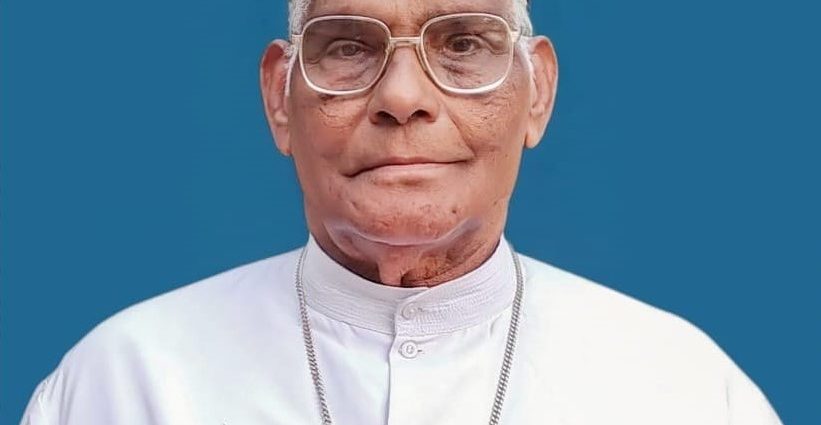By Jose Kavi
New Delhi, July 5, 2024: Bishop George Mamalassery, who had helped transform a remote and hazardous northeastern Indian region into a modern place, died July 5 due to severe respiratory issues. He was 92.
The first bishop of Tura in Meghalaya state died at 2:20 am at Tura’s Holy Cross Hospital that he had established 31 years ago. He had been undergoing treatment for fluid accumulation in his lungs for the past few months.
He served the diocese of Tura for 28 years from 1979.
The government of Meghalaya had honored Bishop Mamalassery with the Pa Togan Sangma award that was set up in honor of a Garo tribe leader who had fought the British in the late 19th century.
The University of Science and Technology, Meghalaya, conferred him an honorary doctorate in 2019 for his contributions to education, healthcare, and socio-economic development.
Mourning the death, the Catholic Bishops’ Conference of India hailed Bishop Mamalassery as a prelate with “unparalleled commitment” a man of visionary leadership” who helped transform the northeastern Indian region’s socioeconomic and educational landscape.
The conference’s July 5 statement noted that Bishop Mamalassery expanded parishes, set up educational institutions and enhanced healthcare facilities.
“His compassionate efforts during the 1971 Bangladesh Liberation War and the founding of Holy Cross Hospital are testament to his enduring legacy,” the statement added.
Bishop Mamalassery was born on April 23, 1932, at Kalathoor in the southern Indian state of Kerala, as the youngest of three children to Kurian and Elizabeth Mamalassery. Orphaned at 12, he joined Sacred Heart Seminary in Poonamallee for the diocese of Madras-Mylapore, completing his studies from 1950 to 1960. “Driven by missionary zeal, he volunteered to serve in the northeast.
Archbishop Louis Mathias of Madras-Mylapore ordained him on April 24, 1960.
The newly ordained priest was sent to the Garo Hills in the Archdiocese of Shillong-Guwahati, a remote, hazardous region plagued by malaria and wildlife.
After serving as an assistant parish priest in Tura and Baghmara for a decade, he became parish priest of Dalu in 1970. During the 1971 Bangladesh Liberation War, he provided shelter, food, and support to displaced people in his parish.
On February 8, 1979, the Pope appointed him the first bishop of Tura. He was 46 then. As bishop, he expanded 14 existing centers and established 23 new parishes, complete with churches, presbyteries, convents, dispensaries, hostels, and schools.
Recognizing the region’s poor economic and educational standards, he developed a network of educational institutions, even in remote areas, says a statement from the Conference of Catholic Bishops of India.
Bishop Mamalassery invited the Salesians and Jesuits to establish colleges in Tura and Williamnagar. He set up 34 dispensaries across Garo Hills’ five districts and founded the 150-bed Holy Cross Hospital in Tura in 1993. His construction initiatives earned him the nickname “Engineer Bishop.”
He also prioritized healthcare education, establishing the Rino Simonetti School of Nursing in Tura. For differently-abled individuals, he invited the Montfort Brothers to set up the Montfort Centre for the Physically Challenged. Bishop George was instrumental in setting up Bakdil, the diocesan social service center, now one of the top-performing NGOs in northeastern India.
After his retirement in 2007, Bishop George continued to serve the diocese from the Priest’s Home.












Respectful farewell to His Grace Bishop Emeritus George Mamalassery. RIP.
Surely he will receive a just reward for his untiring work